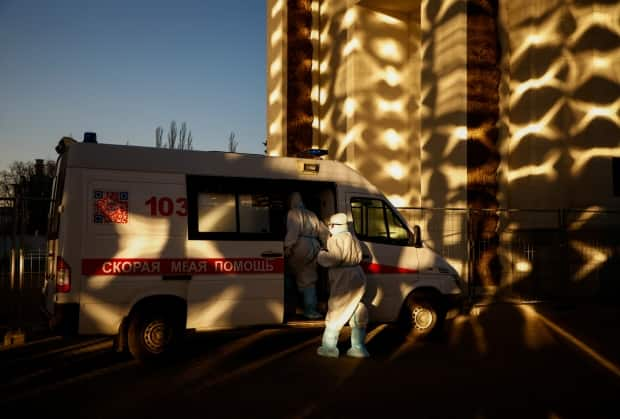Inside a pop-up COVID hospital in Moscow, Russia's worst-hit city in coronavirus crisis

Russia's official COVID-19 case tally passed the two million mark this week as the number of daily deaths and infections hit new highs, prompting government calls for more action to fight the pandemic.
"The situation with COVID is very tense," a spokesperson for Russian President Vladimir Putin told reporters Thursday. "This topic is now a priority for the president."
Despite the surge in cases, which brought Russia's caseload to 2,015,608 and the death toll to almost 35,000, some patients in one of Moscow's recently opened pop-up COVID hospitals were surprised to find themselves there.
One patient, Ramil, who declined to give his last name, said he never expected to get the virus and be so ill.
"I didn't think something like this would happen," the 37-year-old said, speaking from his hospital bed.
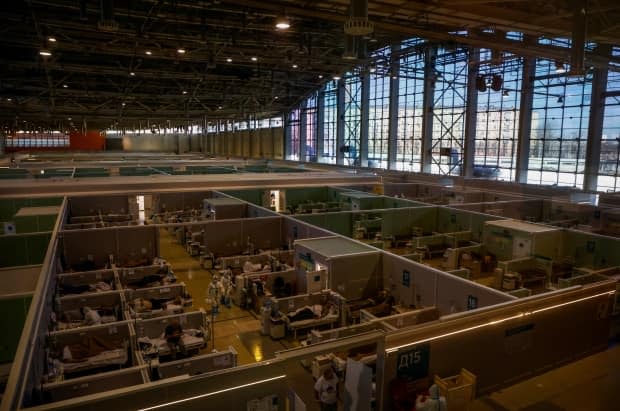
'It's been really hard'
There were 6,438 new cases in Moscow, the country's worst-affected area, according to the coronavirus crisis response centre. Russia, which has a population of around 145 million, has the world's fifth-largest number of cases after the United States, India, Brazil and France.
It was Ramil's fourth day labouring to breathe on the COVID ward at the recently transformed pavilion on the grounds of the All-Russia Exhibition Centre, also known as the Exhibition of Achievements of National Economy, or VDNKh.
The historic exhibition site was built under Josef Stalin to glorify the economic and scientific achievements of the U.S.S.R. In mid-October, as the second wave of cases began to take off in the city, the 1,200-bed facility was opened. Two more temporary hospitals have since been created in the city to cope with the surge of cases.
"I believed [COVID] was real, but I thought it would be easier to get over it. For me personally, it's been really hard," Ramil told a CBC News crew who suited up from head to toe and went inside to look at conditions in the so-called red zone.
Unlike hospital workers — and visiting journalists — who are sealed up tight in protective gear, patients stand out as they are wearing street clothes.
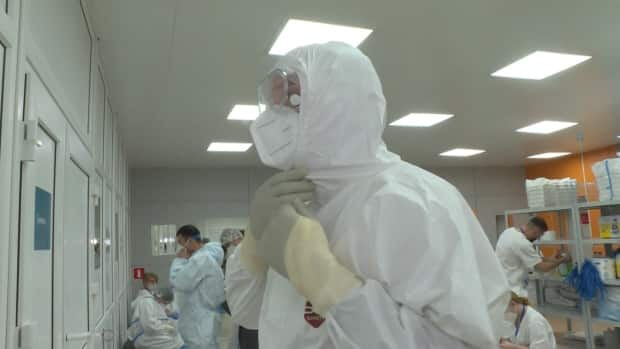
Worst cases moved elsewhere
Most, including Ramil, spend their days in bed and move around as little as possible, although for those who are on the mend, there is a small communal area where they can watch movies.
Those who take a turn for the worse are usually sent to a different facility with an intensive care ward and ventilators.
Once a patient no longer tests positive for COVID, they can go home.
And though many of the patients in the airport-hangar-like building have what would be considered mild to moderate symptoms, even those can pack a punch.
"I thought it was like the flu," said Mikhail, another patient who declined to give his surname.
He was weak, struggling with a high fever and, like many others, needed oxygen to breathe.
"It was really bad. I think I got it on public transport," he said.
WATCH | CBC News tours temporary COVID-19 hospital in Moscow:
Vaccine race
Russia's government boasts it's beating back the pandemic by investing in new health care technology and building temporary hospitals, such as the one CBC visited. It's also conducting trials of three new coronavirus vaccines, including its much-hyped Sputnik V.
On Wednesday, Russia's Deputy Prime Minister Tatyana Golikova announced 600,000 doses of the still-in-trial Sputnik vaccine would be released to the public in November, along with another 2.2 million doses in December.
Russia has made boastful predictions about its vaccine before, however.
While its developer, the Gamaleya Institute of Epidemiology and Microbiology, claims early results demonstrate 92 per cent effectiveness in preventing coronavirus, it has not released data from Phase 3 trials, which are generally the final, large-scale testing phase for new experimental drugs before they can be approved for public use.
And Russia's government hasn't followed through on earlier promises to quickly start mass inoculation campaigns during the autumn.
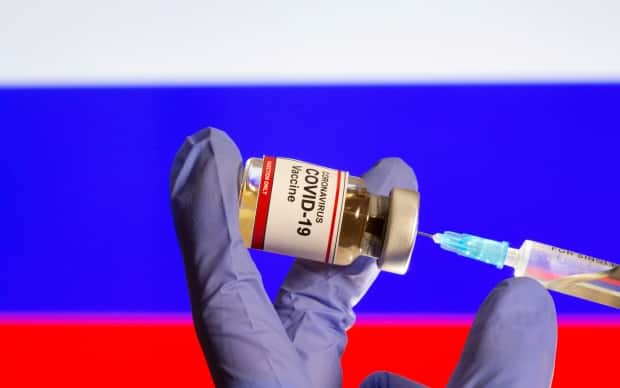
Russia has been registering between 20,000 and 23,000 new cases a day for the past 10 days or so and the government acknowledges the health care system is now pushed to the limit.
On Tuesday, Health Minister Mikhail Murashko said that in 53 of the country's 85 regions around 90 per cent of hospital beds are in use with admissions still rising.
While Moscow has the heaviest case load, it also has more resources to cope with the situation than other cities and towns in the country.Russia's vast hospital network has been under intense scrutiny all fall as horror story after horror story emerged on social media, depicting dirty, dilapidated facilities with overflowing morgues and a shortage of doctors to care for patients or do autopsies.
At a hospital in Chelyabinsk, a city in the Ural Mountains, a large oxygen tank meant to supply COVID patients blew up, destroying the facility but miraculously leaving those inside unscathed.
Russia is officially reporting 34,850 COVID deaths although some demographers and statisticians estimate it may be as high as 102,000.
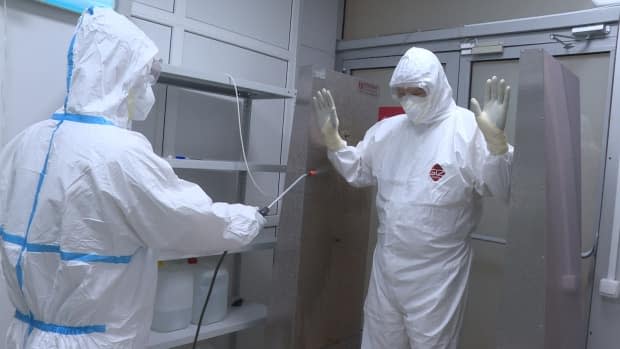
Authorities stress preparedness
In the Moscow hospital CBC News visited, the patients all appeared to be in good hands and getting quality care.
The facilities were new and modern and while staff appeared busy, there were no obvious signs of exhaustion.
That is likely why Russian authorities brought journalists there — to push the narrative that the country is winning the fight against COVID.
"As of today, we are not racing to keep up," said Svetlana Zeinalova, the doctor in charge. "The city is well equipped.
"Our medical staff get tired, but they work, and nobody complains. They save people's lives so that we can stop this pandemic here in Russia."
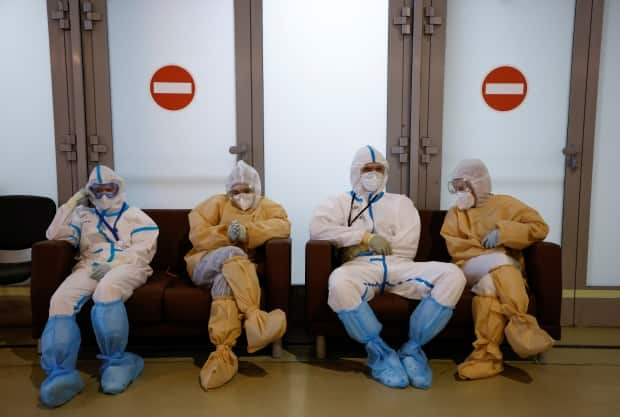
CBC News was also taken to a separate state-of-the-art diagnostic centre where a team of radiologists and other specialists were testing new equipment to study patients' lung scans.
They then upload the results along with their diagnoses so doctors on the hospital floor could scan patients' health care data on a wrist band and immediately know their condition and treatment regime.
"We have full computer diagnostics and medicines and all the examinations that are required," Zeinalova said proudly.
Still, critics associated with Russia's Western-leaning opposition are urging people to look past the staged hospital tours and see conditions beyond the capital for the mess they are.
WATCH | Hospitals in parts of Russia were already overwhelmed even before recent spike in cases:
Poor conditions in regions beyond Moscow
Dr. Anastasia Vasilyeva, who met up with our crew hours after returning from a tour of hospitals hundreds of kilometres to the north of Moscow, said other regions are very poor and don't have proper resources.
"There's a lack of medical workers, a lack of medicines and a lack of everything that is needed to treat coronavirus," she said.
Vasilyeva heads up a doctor's union that works closely with opposition figure Alexey Navalny, who remains in Germany after recovering from an assassination attempt involving the nerve gas Novichok.
"I think they try to show that in Russia everything is good, that Russia has no problems with coronavirus and medical staff," she told CBC News.
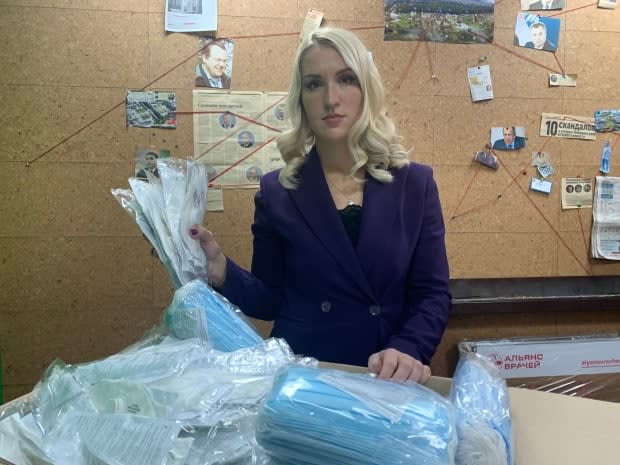
Vasilyeva said her team packed their vehicles full of personal protection gear purchased with donations and gave it away to hospitals where conditions are much more dire than in Moscow.
"The toilets, the bathrooms — they are really in terrible condition," she said of one hospital in the town of Nyandoma, in Naydomsky District, about 800 km north of Moscow.
She said paint was peeling off the walls, toilet bowls and sinks were dirty and wretched and the entire ward looked more like something out of a prison than a hospital.
"How can patients be there? And how can you treat patients in such conditions?"
She said her team was also harassed by police, who she feels were acting on political instructions. On their way in between hospitals, she said, they were stopped and accused of drinking, forcing her team to pull over and postpone part of their trip.
"I think the chief doctors and some officials put money in their pockets because I don't know why such a rich country has such awful, terrible hospitals and clinics," said Vasilyeva.
Meanwhile, Health Minister Mikhail Murashko said the heads of regions with a high incidence of infections should use their authority to improve the situation.
